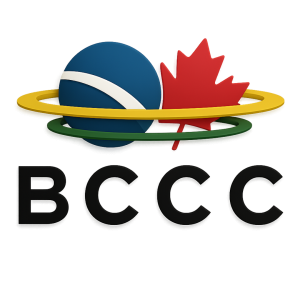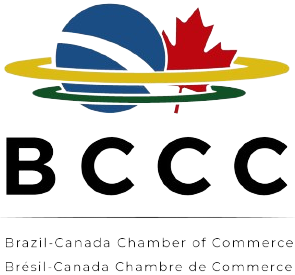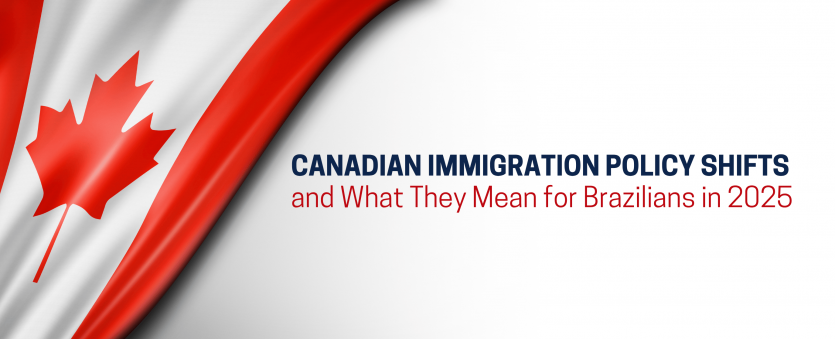Canada has long been a top destination for immigrants worldwide due to its welcoming policies, economic opportunities, and high quality of life. For Brazilians, Canada is not just an appealing option; it’s becoming a strategic one. In 2025, a series of immigration policy shifts and emerging trends have begun shaping how Brazilians approach Canadian immigration. In this blog, we explore what these changes mean, what pathways are being prioritized, and how Brazilians can prepare for success.

OVERVIEW:KEY IMMIGRATION POLICY SHIFTS IN 2025
As of mid-2025, Immigration, Refugees and Citizenship Canada (IRCC) has introduced and continued rolling out several significant changes to better align immigration with labor market needs, economic growth, and technology integration. Some of the most notable policy developments include:
-
Category-Based Express Entry Draws
In 2023, IRCC introduced category-based Express Entry draws that prioritize candidates with experience in specific sectors such as healthcare, STEM, trades, transport, and agriculture. These draws have become more frequent in 2025, with language proficiency and Canadian education also receiving additional weight.
For Brazilians, this is especially relevant. Many hold degrees and experience in engineering, IT, and healthcare—fields that are now consistently prioritized.
-
Expansion of the Francophone Stream
To encourage French-speaking immigrants to settle outside Quebec, Canada has enhanced its Francophone Mobility Program. Brazilians from French-speaking regions or with French education now benefit from faster processing times and additional points under Express Entry.
-
More Provincial Autonomy through PNPs
Provinces have more say than ever in their immigration needs. In 2025, Provincial Nominee Programs (PNPs) now account for over 40% of all PR admissions. This shift means Brazilians can strategically target provinces that match their professional profile—such as tech in British Columbia, agriculture in Saskatchewan, or manufacturing in Ontario.
-
Increased Use of Automation and AI
AI is being increasingly integrated into immigration processing. In 2025, IRCC continues using AI-based tools to streamline visitor and work permit applications. For Brazilian applicants, this has led to faster decision-making, but also calls for more accurate and complete applications, as machine learning systems are less forgiving of missing information or inconsistencies.
-
Tightened Rules Around Proof of Funds and Work Offers
To reduce misuse of study permits and temporary work programs, IRCC has increased minimum financial requirements and tightened compliance monitoring. This change particularly affects Brazilians applying through the student route or those planning to bring family dependents.
WHAT THIS MEANS FOR BRAZILIANS
More Opportunities for Professionals in Key Sectors
Brazil is home to a robust talent pool in engineering, software development, health sciences, and agribusiness. These are among the most in-demand occupations in Canada right now. As Canada focuses on category-based Express Entry draws, Brazilian applicants with the right experience and language skills can expect better chances of receiving an Invitation to Apply (ITA) in 2025.
A Strategic Shift Toward the Study → Work → PR Path
While the international student pathway remains strong, Canada is now more selective about who receives a study permit. Students from Brazil need to demonstrate clear intent to study, sufficient funds, and strong ties to their home country, especially if applying with dependents. However, those who are approved continue to benefit from the Post-Graduation Work Permit (PGWP) and often transition into permanent residency.
Targeting Smaller Provinces Can Yield Faster Results
With provinces like Nova Scotia, Manitoba, and Saskatchewan actively seeking foreign talent, Brazilians open to moving outside Toronto or Vancouver can take advantage of lower CRS score thresholds, faster nomination timelines, and strong community support. Programs like the Atlantic Immigration Program (AIP) are particularly suited to newcomers with job offers in the region.
Language Matters More Than Ever
French-speaking Brazilians or those willing to learn French may find accelerated immigration opportunities through the Francophone stream. Even modest proficiency can earn additional CRS points. French language training is widely available in Brazil, and now may be the perfect time to invest in it.
CHALLENGES FACING BRAZILIAN APPLICANTS
While opportunities abound, the current policy climate also brings some hurdles:
-
Proof of Funds Requirements
Brazilians must now show significantly higher minimum savings for programs like Express Entry and student permits. This ensures applicants can support themselves but may exclude those without sufficient financial backing.
-
AI-Based Processing = Less Room for Error
Incomplete documents, inconsistent information, or poorly written letters of explanation are now flagged faster. This places more pressure on applicants to submit error-free, well-documented applications.
-
Competition is Increasing
With countries like India, the Philippines, and Nigeria also sending high volumes of skilled applicants, Brazilians must ensure their profiles are competitive—particularly in terms of language scores, education equivalency, and work experience.
RESOURCES FOR BRAZILIANS IN CANADA
Navigating Canadian immigration policies can be daunting, but several institutions offer tailored support to Brazilians.
Brazil-Canada Chamber of Commerce – BCCC
The BCCC is a leading organization helping Brazilians integrate economically and socially into Canadian life. Established in 1973, the BCCC offers:
- Networking events with Canadian and Brazilian professionals
- Immigration and legal webinars
- Support for entrepreneurs exploring the Canadian business landscape
- Collaboration with Canadian government programs and trade missions
Whether you’re seeking a job, looking to grow a startup, or simply want to connect with the Brazilian diaspora in Canada, the BCCC is a trusted resource. Learn more: brazcanchamber.org
Community Support Groups
Beyond formal institutions, online groups on social media- including facebook, and local associations in Toronto, Montreal, and Calgary, offer social support, advice, and housing/job leads. These communities are especially helpful for those navigating their first months in the country.
TIPS FOR BRAZILIAN APPLICANTS IN 2025
- Tailor your immigration plan: Choose a program that best matches your experience—Express Entry, a PNP, or study pathway.
- Work with a licensed consultant or lawyer: Professional help is increasingly valuable given the automation and complexity of today’s systems.
- Target less saturated provinces: Lower competition and more provincial support can accelerate your journey.
- Prepare for AI-based screening: Double-check your documentation for accuracy, consistency, and completeness.
- Stay updated: Policies are evolving quickly—monitor IRCC news releases and updates to avoid missing important changes.
FINAL TOUGHTS
Canada’s evolving immigration landscape in 2025 is filled with opportunities for Brazilian nationals. With targeted draws for skilled workers, increasing provincial support, and a strong demand for global talent, the door to Canada remains wide open—but success now depends more on strategy, accuracy, and preparedness.
For those ready to invest in their future, Canada continues to be a land of promise—and Brazilians are uniquely positioned to make the most of it.
SONIA MIRBAHA
Sonia Mirbaha is a seasoned immigration advisor and a paralegal member of the Law Society of Ontario since 2009. With a deep-rooted background in immigration law, Sonia brings over a decade of experience from both private practice and in-house legal environments, making her a trusted resource for individuals, families, and corporations navigating Canada’s immigration system.
Sonia is deeply passionate about technology and innovation, particularly the transformative role of artificial intelligence in administrative law. She is actively engaged in exploring how AI-driven systems are reshaping immigration policy, decision-making processes, and procedural fairness.
Her interest lies in leveraging technology to make immigration services more accessible, efficient, and transparent while ensuring legal integrity and human-centered outcomes. Prior to founding SMB Advisors, Sonia managed a Toronto-based immigration law firm where she built a reputation for strategic and client-centric services. Her approach combines a solid legal foundation with practical business acumen, enabling her to tailor effective immigration strategies that align with both individual and corporate objectives.
Committed to community service, Sonia regularly contributes to mentorship programs and educational initiatives. She is a frequent speaker at workshops, webinars, and industry events, sharing insights on Canadian immigration policy and the future of immigration law in an AI- driven world.
Outside her professional life, Sonia is a proud mother of two, an avid outdoor enthusiast, and a lover of music and dance. She believes in the restorative power of nature and creativity, which she incorporates into her everyday life for balance and inspiration.


